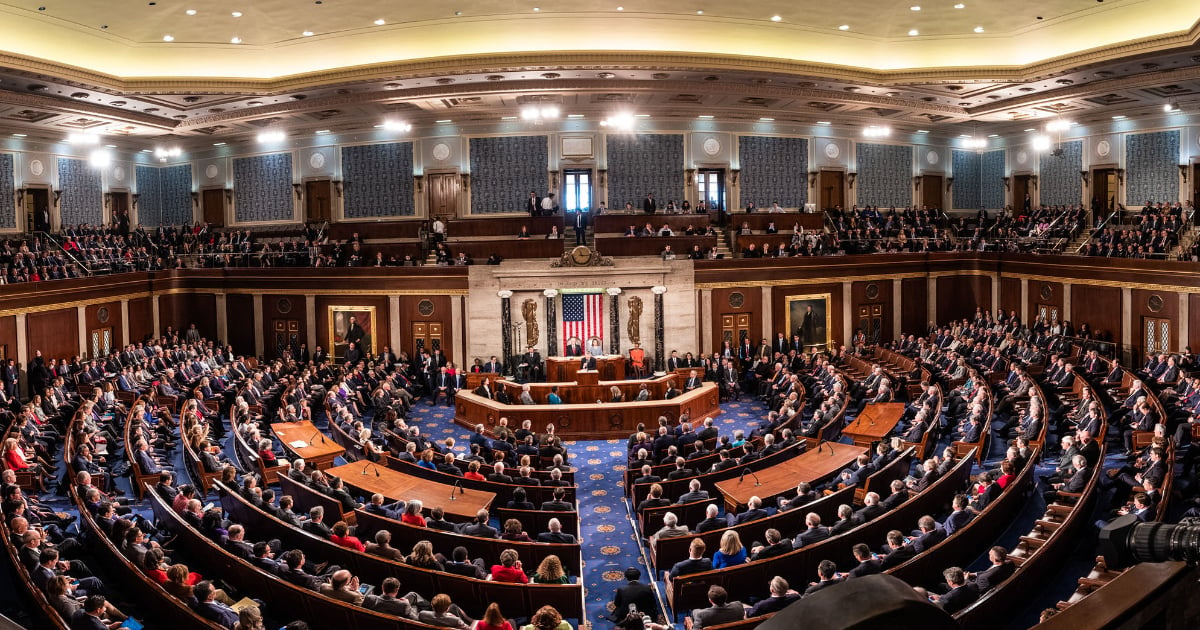The U.S. House of Representatives took a significant step on Monday by passing the Bolívar Act, a bipartisan bill aimed at restricting economic engagements with Nicolás Maduro's regime in Venezuela. This legislation, formally known as the "Prohibition of Operations and Leases with the Illegitimate Authoritarian Regime of Venezuela Act," was introduced by Florida Representatives Mike Waltz, a Republican and future national security advisor to President-elect Donald Trump, and Democrat Debbie Wasserman Schultz.
"We must uphold existing sanctions against the regime and seek to expand them to reduce Maduro's ability to undermine the freedoms and prosperity of the Venezuelan people. This legislation sends a clear and powerful message to Maduro and other dictators worldwide that there will be no appeasement, no tolerance, and no reward for their illegal and dishonest actions," declared Waltz in a statement.
The primary goal of the Bolívar Act is to "cut a financial lifeline" to the Venezuelan government, explained Waltz. "Our policy should be grounded in solidarity with the courageous activists striving to break free from the chains of oppression and not provide aid and comfort to their oppressors," he asserted. The act reinforces sanctions laid out in the 2020 National Defense Authorization Act, which prohibits the Department of Defense from engaging in contracts with companies linked to entities controlled by Maduro's regime.
Impact on Venezuela's Financial Structure
This tightening of measures aims to prevent international resources from bolstering what Waltz described as Maduro's "repressive apparatus." Republican Congresswoman María Elvira Salazar praised the approval in the House, stating that this law represented another blow to the financial structure of Maduro's regime.
"The legislation cuts an additional financial lifeline for Maduro's repressive apparatus," Salazar expressed in a message shared on social media platform X. The bill now awaits discussion and voting in the Senate, where it enjoys broad bipartisan support, significantly increasing its chances of becoming law without obstacles.
Political Tensions Amidst Electoral Controversy
This development occurs amid political tensions in Venezuela, where the presidential elections held on July 28 were deemed neither free, fair, nor democratic by international observers. The opposition accused the government of fraud after results favored candidate Edmundo González, who is currently in exile in Spain.
In recent years, the Joe Biden administration eased certain economic sanctions to encourage negotiations and potential free elections. These relaxations included licenses for oil companies, such as U.S.-based Chevron, to operate in Venezuela. However, Waltz criticized these measures and stressed the importance of maintaining and expanding sanctions to limit the regime's access to resources that could perpetuate abuses against the Venezuelan population.
U.S.-Venezuela Diplomatic Relations
Since 2019, Venezuela and the United States have not maintained formal diplomatic relations. This rupture followed the Trump administration's recognition of Juan Guaidó as interim president, challenging Maduro's legitimacy. In response, Maduro expelled U.S. diplomatic personnel and closed the Venezuelan embassy in Washington.
Despite the lack of official diplomacy, there are limited communication channels for specific issues, like the release of American citizens detained in Venezuela or managing the humanitarian crisis. The United States continues to recognize opposition forces as the legitimate representatives of the Venezuelan people, although the interim government was dissolved in 2023.
With the Bolívar Act, the United States reiterates its firm stance against Maduro's authoritarian practices while supporting the rights and prosperity of the Venezuelan people amid tense relations and strict economic sanctions.
Future Relations Under New Administration
This tightening of sanctions is part of a strategy to restrict the Venezuelan regime's access to international resources, affecting especially the oil sector, which is Maduro's primary income source.
Recently, Maduro took advantage of Trump's electoral victory over Kamala Harris to propose a change in dynamics with the United States. Despite conflicts and sanctions during Trump's first term, Maduro expressed openness to constructive dialogue, asserting that his government is ready to explore new paths.
The approval of the Bolívar Act by the U.S. Congress heightens existing tensions but keeps the door open for changes in relations with the new Trump administration. This shift could have significant implications, not only for Venezuela and the United States but also for Cuba and the entire region.
